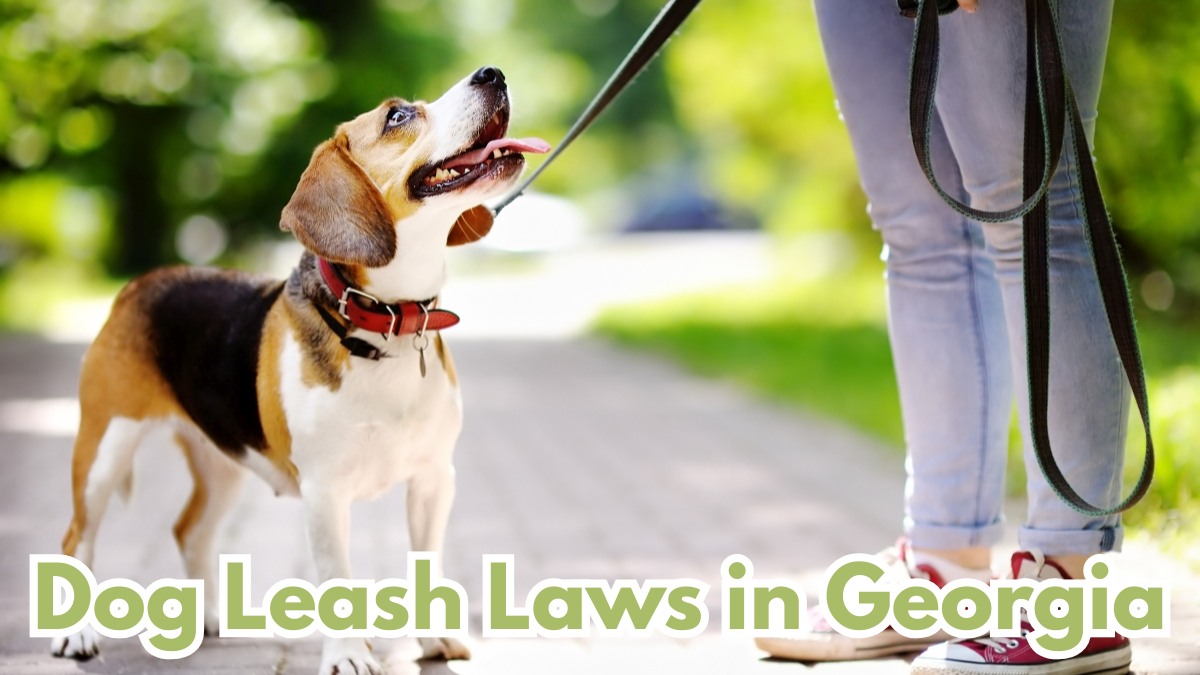A walk in the park on a sunny Georgia day is one of the simple joys of dog ownership. Whether you’re navigating the bustling paths of Piedmont Park in Atlanta or enjoying a quiet stroll through a neighborhood in Savannah, your dog’s leash is more than just an accessory—it’s a legal requirement. However, understanding the specific rules can be complex, as Georgia’s leash laws are a patchwork of state and local ordinances. For the safety of your pet, your community, and yourself, here is a comprehensive look at what every Georgia dog owner needs to know.
Is a Leash Law in Effect Across All of Georgia?
The short answer is no. Georgia does not have a single, universal law that mandates all dogs must be on a leash in public spaces. Instead, the state operates under “home rule,” which grants individual cities and counties the authority to create their own animal control ordinances. This means the law can change simply by crossing from one county line to another. As The rules will vary according to the local authorities, but some common restrictions include:
- A dog cannot run freely on public property, so it must be restrained at all times when not on the owner’s premises.
- It is not sufficient for a leash to be wrapped around the dog’s neck. It must be attached to a properly fitting collar or harness.
- Collars and harnesses must fit snugly around the neck or upper body of the animal, to prevent the dog from wriggling out.
- The dog’s leash cannot be more than 6 feet long, even when using retractable leashes.
- In certain situations, an owner may be required to humanely muzzle the dog.
While there isn’t a blanket leash law, state law does step in with specific requirements for certain animals. The most significant piece of statewide legislation is the Georgia Responsible Dog Ownership Law (O.C.G.A. § 4-8-20 et seq.), often referred to as the “dangerous dog law.”
This law provides a legal definition for a “dangerous” or “vicious” dog. A dog can be classified as dangerous if it:
- Causes a substantial puncture of a person’s skin by teeth without causing serious injury.
- Aggressively attacks in a manner that causes a reasonable person to believe the dog posed an imminent threat of serious injury.
- Kills a pet animal while off its owner’s property.
According to Georgia law, owners of a dog classified as “dangerous” must keep the animal on a leash and under the immediate physical control of a responsible person at all times when it is not securely confined.
Local Ordinances: Where the Rules Really Live
For the vast majority of dog owners, the rules you must follow are written at the local level. Most municipalities and counties in Georgia have enacted “at-large” ordinances, which make it illegal for an owner to allow their dog to be unrestrained off their property.
The specifics of these ordinances vary significantly. Here are a few examples from across the state:
- City of Atlanta: The city’s code is very specific. According to the Atlanta Code of Ordinances, Sec. 18-62, owners must keep their dogs “under restraint” and on a leash “not to exceed six feet in length” when in a public area, street, or on the property of another. This rule applies to city parks unless you are in a designated off-leash dog park.
- Fulton County: Similar to Atlanta, Fulton County’s animal control ordinance requires dogs to be under restraint. The county code states an animal is considered “at large” if it is off the owner’s premises and not under the control of a competent person.
- Cobb County: Cobb County’s ordinance requires all pets to be “under the immediate control of a responsible owner” and restrained by a leash, fence, or other enclosure when off the owner’s property.
- Chatham County (Savannah): In Chatham County, animal control laws mandate that a dog cannot run at large. Owners must ensure their pet is confined to their property or controlled by a leash when in public.
How to Find Your Local Leash Law
Since the rules depend entirely on your location, every pet owner should find and read their local ordinance. The most effective way to do this is to visit your city or county government’s official website and search for the “Code of Ordinances.” Navigate to the sections on “Animal Control” or “Animals.” This will provide the precise legal language, including leash length requirements and the specific definitions of “at large” and “under control.”
Best Practices for Georgia Dog Owners
Legal obligations aside, responsible pet ownership is about ensuring community safety. Following these best practices will protect your dog, other people, and other pets.
When in Doubt, Leash Up: This is the golden rule. If you are unsure about the specific regulations of a park, neighborhood, or public space, the safest and most respectful action is to keep your dog on a leash.
Understand Leash Etiquette: Using a leash properly is also critical. Keep your dog close to you on sidewalks and paths, prevent them from approaching other people or pets without permission, and never use a retractable leash in a crowded area where it can become a tripping hazard.
Utilize Designated Off-Leash Areas: Many Georgia communities have invested in creating safe, fenced-in dog parks. These are excellent places for your dog to run, play, and socialize freely and legally. Research parks in your area to find one that suits your dog’s size and temperament.
Penalties for Violations
Failing to comply with local leash laws can result in significant consequences. A first-time offense typically leads to a fine, which can range from $50 to several hundred dollars depending on the jurisdiction. Repeat offenses often carry steeper fines.
Beyond a financial penalty, if your unrestrained dog bites a person or attacks another animal, the legal ramifications can escalate dramatically. You could face civil liability for damages and medical bills. Furthermore, animal control may impound your dog, and it could be officially classified as “dangerous” under state law, subjecting you to much stricter ownership requirements for the rest of the dog’s life.
Read More: Dog Leash Laws in Alabama in Public: What Every Pet Owner Needs to Know




